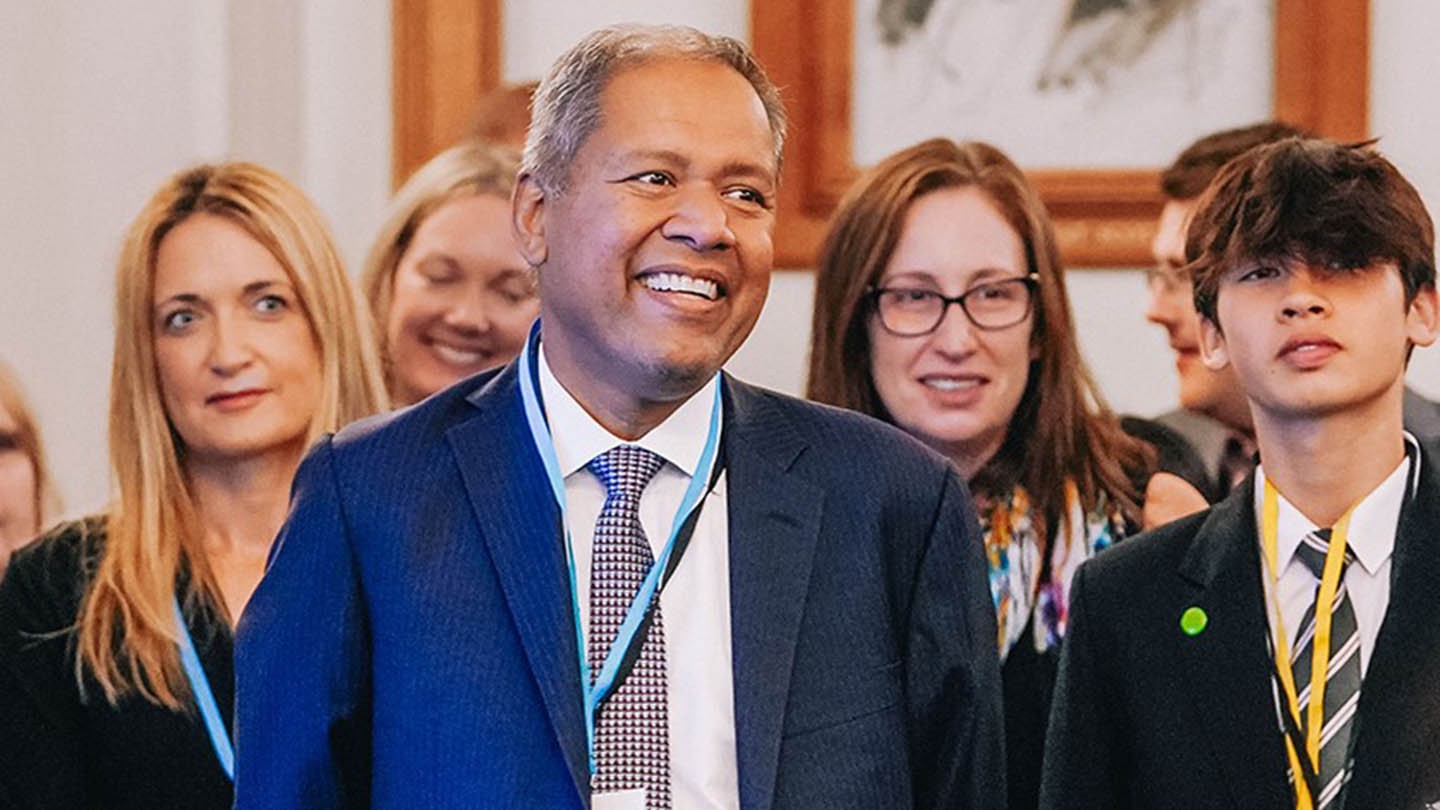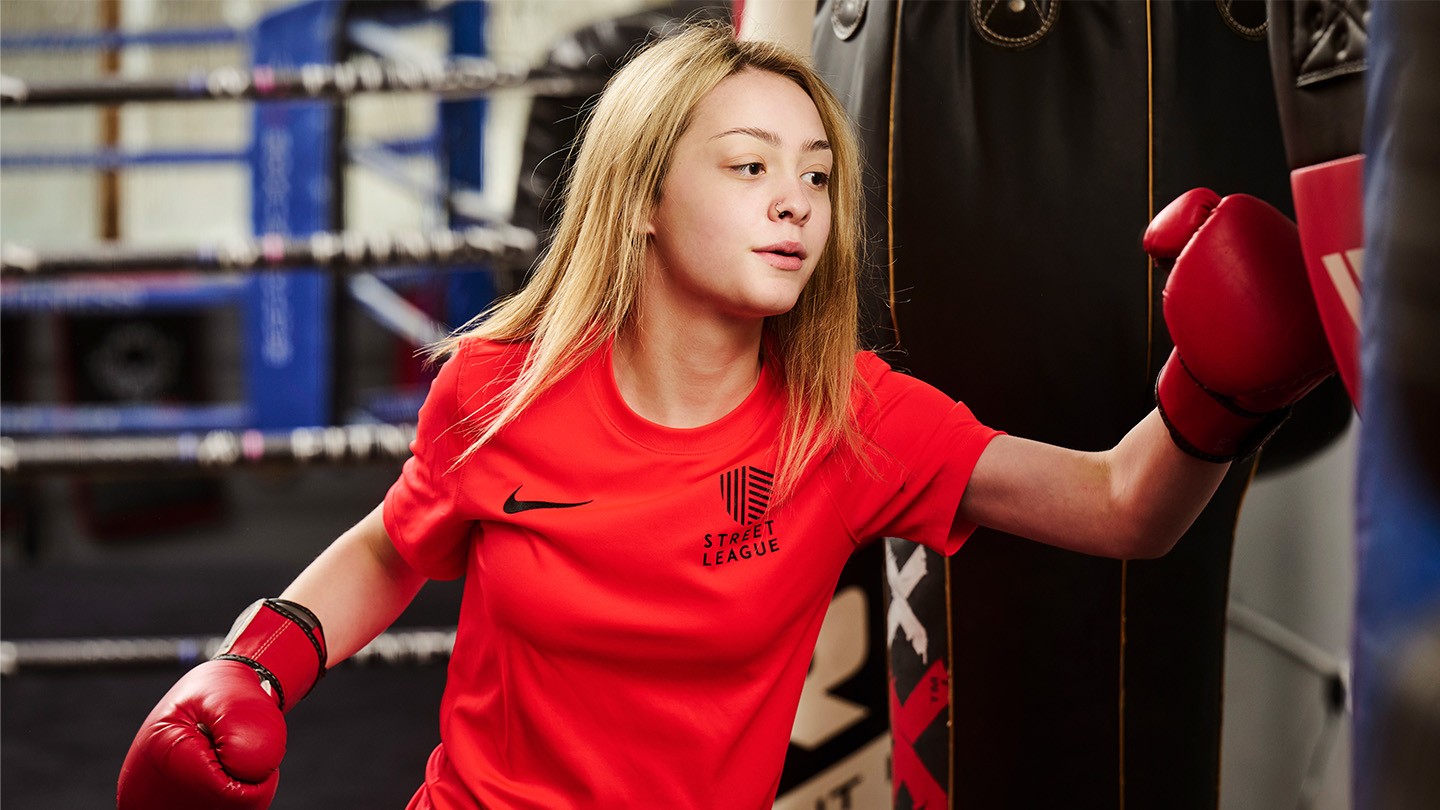
Barclays LifeSkills: pivoting to support underserved communities
01 November 2023
10 years, more than 100 hours of educational resources, millions of people supported – the Barclays LifeSkills programme has been helping to transform futures through its employability tools and learning resources. Kirstie Mackey OBE, Managing Director, Citizenship UK and Europe, reflects on the programme’s journey since its launch – and how it is evolving to help tackle social inequality in the UK.
A decade since its launch, the Barclays LifeSkills programme is not slowing down. Created in 2013, with an initial focus on helping to tackle youth unemployment in the UK, the global programme is built around more than 100 hours of curriculum-linked online tools and resources, along with partnerships offering a wide range of support to give people the core transferable skills, confidence and connections they need to succeed and make career decisions.
Nearly one million young people were unemployed in the UK around the spring of 2013 – a figure Kirstie Mackey OBE, who started the programme, attributes in part to gaps in career services available in schools then. “This made the transition to the world of work really difficult for young people,” she says.
To develop a solution based on real insights, her team connected with teachers, young people, parents and business owners, to strengthen the links between education and employment, helping young people find opportunities in the job market.
Building on this success, in 2019 the programme was extended to support families and adults in the workplace. Most crucially, it has continually evolved to meet the changing needs of society. Its resources have become even more vital through the rising cost of living.
Now, Mackey explains, LifeSkills is placing socio-economic inclusion at the heart of its approach, focusing on supporting people to develop the crucial employability and financial skills they need to succeed, thrive in the digital age, and better manage their money.
A priority is to increase support for people from underserved communities and under-represented groups: “If you’re born into a lower socioeconomic background, you’re likely to face even more barriers in terms of academic attainment, access to the digital economy and job outcomes.”
Part of this will involve providing a combination of resources and grants to families in need. Along with helping to build people’s transferable skills, this increased support “might involve contributing to childcare or transport costs, to help them get into work”, Mackey adds.
C.S. Venkatakrishnan, Group Chief Executive Officer at Barclays, says: “The UK is reshaping its economy in the face of societal and technological change. Now is the right time to refocus our LifeSkills employability programme to support those underserved groups who face the biggest barriers in society.”

Barclays CEO, C.S. Venkatakrishnan, pictured at the LifeSkills parliamentary reception in October 2023.
Budding partnerships
This new focus has involved launching and expanding partnerships with charities across the UK, developing tailored models of intensive LifeSkills activity to help reach different groups in society – particularly those who face challenges getting into work and staying in employment.
These will play a crucial role in delivering LifeSkills’ ambition to help people develop core transferable skills, that are sought after by employers and can be applied in the workplace. “Skills such as problem solving, communication, creativity and resilience – are incredibly relevant,” says Mackey.
“People have lots of skills they can offer businesses, but they might not have the confidence to be aware of what those are, or how companies might need them.” She points to sport as an example. “If you’re captain of a football team, you’ll have developed leadership skills. But you might not be aware how transferable these skills are to the world of work.”
This year, one of the organisations that the LifeSkills team is collaborating with is Street League, a charity that uses the power of sport and education to help tackle poverty – and place young adults aged 16 to 30 onto successful career paths. The partnership is set to support 600 individuals into work in 2023.
The charity runs 10 to 15-week programmes, identifying practical and personal obstacles to participants securing a job, while crafting individual learning plans, and offering weekly reviews and assessments. Playing sport is integral to the programme, with sessions complemented by LifeSkills lessons on budgeting, money management, and employability skills such as CV writing and workplace behaviour. Through the partnership, the programme will reach people in key Barclays locations such as Glasgow, Liverpool, Manchester and London, alongside other regions in the UK.
“I was at a dodgeball session recently, and what was great is that the coach was linking back to what he had taught participants about transferable skills,” says Mackey. “He was really emphasising those messages.”
Alongside this, LifeSkills has partnered with other charities. These partnerships include a new three-year commitment with Family Action, which will support families by building skills and providing grants. Meanwhile, work with The Talent Foundry will support students in schools in underserved communities to build confidence, skills and knowledge.
“Working closely with organisations like The Talent Foundry, Street League and Family Action, we will provide support and training to help unlock skills and employment opportunities for disadvantaged people across the UK,” says Venkatakrishnan.

The LifeSkills partnership with Street League is set to support 600 individuals into work in 2023.
A decade of support
In the last decade, LifeSkills has reached millions of participants – a remarkable achievement that is not lost on Mackey. “It’s incredible to see the impact that the programme has had,” she reflects.
People surveyed in the UK this year responded positively to the programme – with 88% of participants reporting that they feel more positive about their future, 91% saying they have an improved awareness of their strengths and skills – and 84% saying they feel more prepared to make future career decisions.
Beyond the impressive statistics, Mackey says what touches her most is hearing the individual stories that highlight how LifeSkills has changed people’s lives.
“There was one student who was incredibly shy at school,” she recalls. “But he loved the LifeSkills programme – so much that he delivered an emotional presentation about its impact at an event at Wembley Arena. He then started teaching LifeSkills sessions to students in the years below him at school. This was someone who didn’t use to put their hand up in class.
“Seeing that shift in young people first-hand, that's the most powerful thing – and what I'm proud of,” she adds.
So, how does it feel to look back on LifeSkills? “The time seems to have flown by. It's very humbling to think that our initial idea has come this far,” says Mackey. “I hope the programme continues to give people the confidence and skills they need to unlock new opportunities.”

LifeSkills is working with charity Family Action, to support families by building skills and providing grants.
About LifeSkills
LifeSkills provides free lesson plans, modules and interactive tools for educators to use directly with young people in education and adult learners. It also supports independent learners and families by offering access to online tools and resources.
LifeSkills is also delivered with charity partners to support underserved communities in breaking down barriers to get into work, to thrive in the digital age and to better manage their money. The programme is helping people to develop the skills, connections and opportunities that can help set them on a new trajectory.